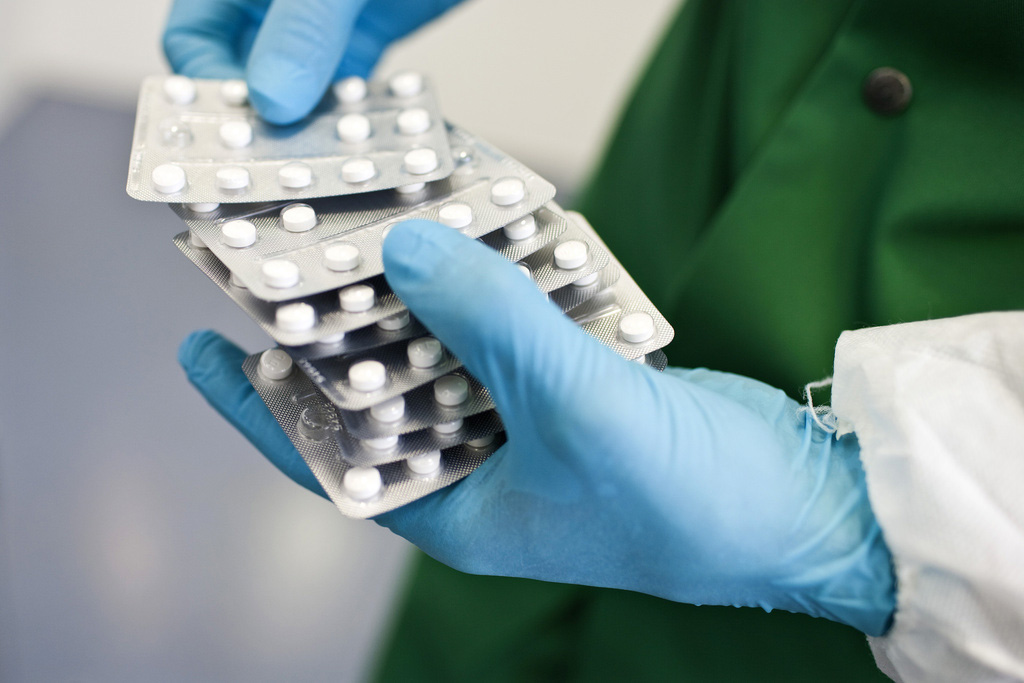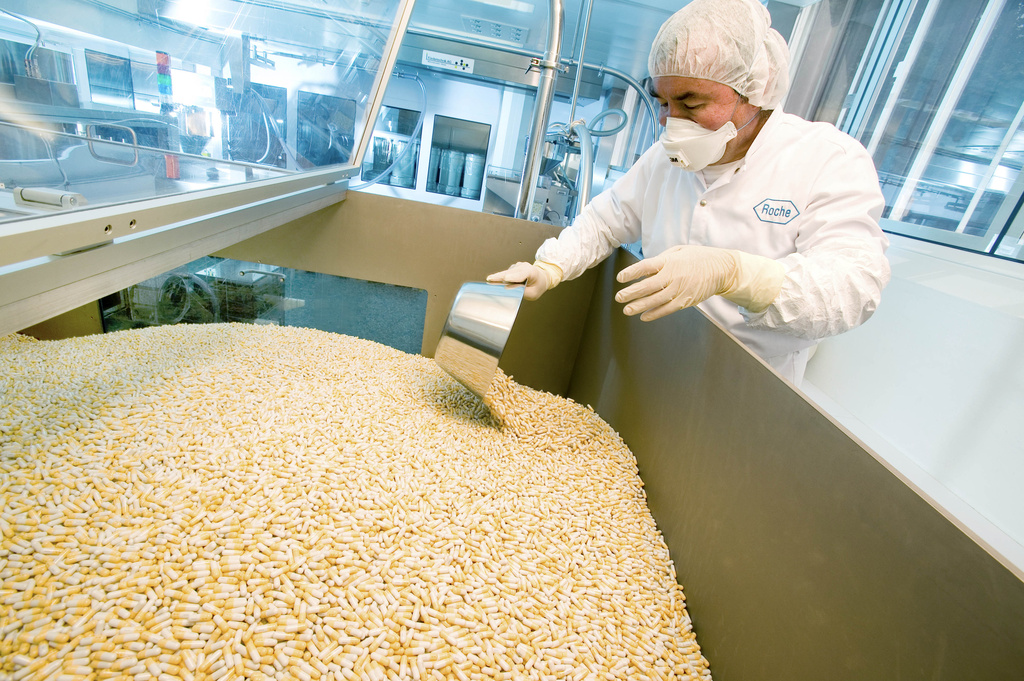Biotechs break blockbusters mould for success

Biotechnology firms are looking beyond mega-selling blockbuster drugs as they search for a profitable future business model.
The spiralling cost and risk of relying on magic pills for revenues, plus increasing competition from generics and changing demand from developing countries is forcing smaller enterprises to diversify their production, an industry conference has heard.
The cost of developing a promising molecule into a blockbuster drug has risen from around $300 million (SFr300 million) in 1996 to $2 billion in today’s market, thanks mainly to increased regulatory safety requirements.
The nearly seven-fold increase in production costs inside 15 years has resulted in more cost, risk and profit-sharing alliances between biotechs and pharmaceutical firms to produce, market and distribute drugs.
But it has also forced a strategic rethink and the start of a movement into niche areas, such as veterinary and eye care products, vaccines or nutritional healthcare, the Swiss Equity Biotech Day in Zurich heard on Tuesday.
“The industry has become too fixated on blockbusters,” Oreste Ghisalba of the Swiss Biotech Association told some 200 executives at the conference. “There will still be a market for blockbusters, but many companies will need to explore other niche areas.”
Important sector
Biotechnology is one of the most important industries in Switzerland, with some 237 companies employing more than 19,000 staff and generating revenues of SFr9.2 billion in 2010.
The sector is boosted each year by several start-up enterprises, usually formed by former employees of larger companies or created as spin-offs from university research programmes.
But with competition intensifying both at home and abroad, and the cost of traditional pharmaceutical production becoming ever more onerous, many firms are looking to develop their business into new areas.
One such company, Evolva that was founded in 2004, has taken the broad-based product strategy to heart. The company specialises in synthetic biology, creating new molecules in dishes of yeast injected with artificially-manufactured chromosomes.
The resulting molecules can be used in a wide range of fields, from nutrition, energy, fragrance, agriculture, plastics and textiles.
Yeast yield
Evolva has secured contracts with the United States defence industry to find molecules that would stave off the worst effects of viral and bacterial attacks.
The company announced on Tuesday that it was on the verge of acquiring US research partner Abunda Nutrition. The deal would allow Evolva to mass produce a natural sweetener, dubbed Stevia, which has the potential to transform the way many food products are made and could take off as a healthier alternative to sugar.
Evolva’s strategy, according to chief executive Neil Goldsmith, is to produce a wide variety of molecules that could be manipulated by many industries for different uses.
This would save the company the cost of converting molecules into end products. And at a time when many firms in the industry are nervous about putting too many eggs into one basket, Evolva would be better able to absorb the cost of molecule failures.
Nutrition trend
“Continuing to follow the blockbuster drug model is becoming harder and harder,” Goldsmith told swissinfo.ch.
“If you take the risk and you get it right then you are on the path to glory. But the odds are that you will not succeed and there are too many examples of companies that have narrowed down onto one product and then vanished if it has failed.”
Goldsmith said that emerging markets such as India are not so open to novel but expensive new drugs while Western governments are clamping down on healthcare spend, further squeezing the traditional pharmaceutical market.
One recent trend has seen food and drugs companies converging into the nutrition and consumer healthcare markets. Nestlé opened a new health science division at the start of the year focusing on health conditions such as diabetes, heart disease and obesity.
While the sector is in its infancy at the moment, Goldsmith sees a lot of potential for future growth.
“The consumer healthcare market[s] are by some factors bigger than the pharmaceutical market,” he said. “There is no doubt that the whole industry is shifting.”
Some 237 companies operated in the field of biotechnology in Switzerland in 2010, compared with 203 in 2001.
Most firms in the industry are clustered around the Basel or Zurich regions, but there are also significant groups in cantons Geneva and Ticino.
The industry generated sales of SFr9.2 billion in 2010, a figure that stagnated from 2009. Profits were up from SFr100 million in 2009 to SFr480 million last year.
Some SFr2 billion was spent on research and development in Switzerland 2010.
The industry employs 12,156 people in the public sector (up from 11,000 in 2008) and 7,000 in the private sector (the same as 2008).
The industry attracted some 108 venture capital transactions last year, totalling SFr255 million – down from SFr370 million in 2009.
Swiss biotechs are filing patents at a furious rate. The rate of patents filed tripled between 200 and 2009. Only Japan files more patents per head of capita than Switzerland.

In compliance with the JTI standards
More: SWI swissinfo.ch certified by the Journalism Trust Initiative




You can find an overview of ongoing debates with our journalists here. Please join us!
If you want to start a conversation about a topic raised in this article or want to report factual errors, email us at english@swissinfo.ch.